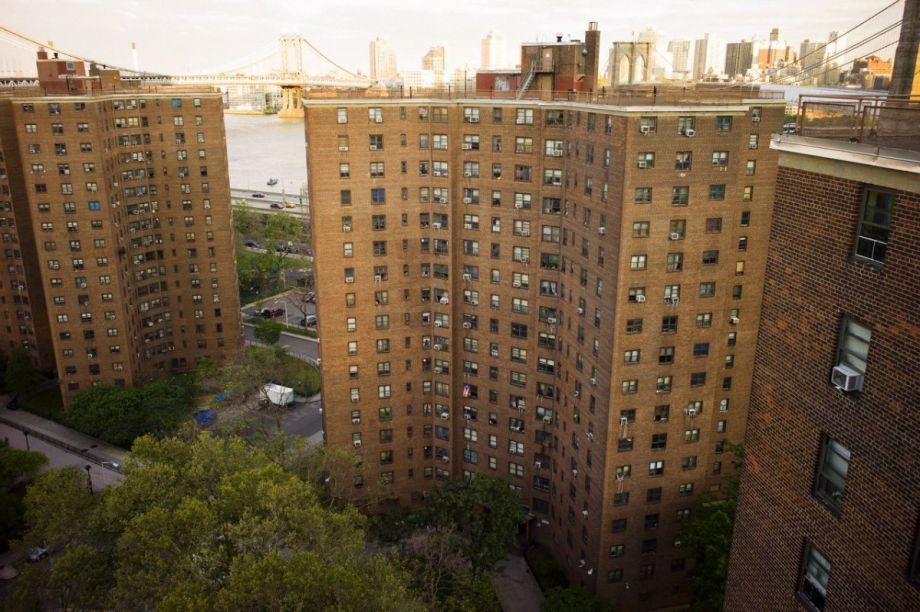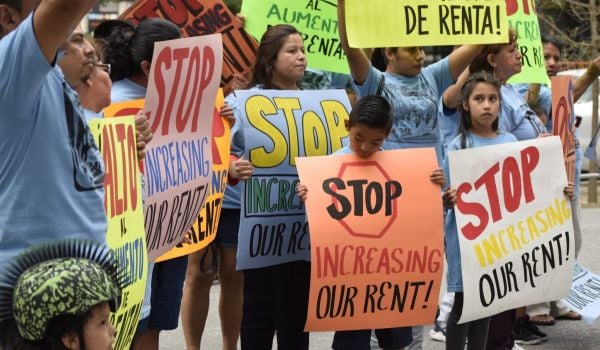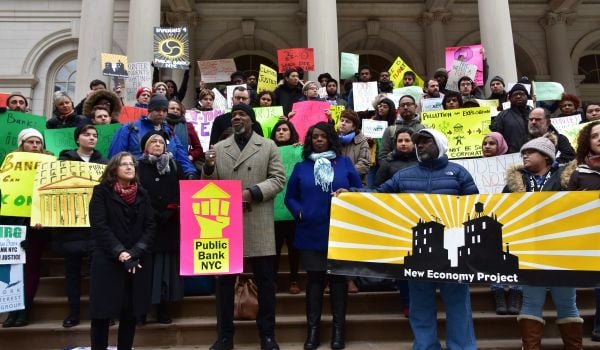After a presidential campaign that promised to put Americans back to work, rebuild our cities and lift up families, President Donald Trump’s administration today proposed a $6.2 billion cut in funding to the Department of Housing and Urban Development (HUD) — a move that would do the exact opposite.
Slashing the agency’s budget at a time when tens of millions of hardworking Americans struggle to make rent would have long-lasting impacts on communities nationwide. But it feels particularly personal in New York, where cuts to funds for public housing would cripple the city’s ability to provide homes for more than 400,000 people (equivalent to nearly the entire population of Atlanta) and effectively manage its public housing properties, which are valued at more than $1 trillion dollars. Homelessness would increase, progress the city has made to reduce inequality and lift families out of poverty would begin to backslide, and the value of one of New York’s most critical assets would deteriorate.
Public housing is the backbone of New York. It is home to working families, thousands of seniors and schoolchildren, and city employees. Nine of the top 10 employers of NYCHA residents are city entities like the NYPD and the Department of Education. With enough support, public housing is a stable platform that helps kids reach their full potential. At one point in their lives, Starbucks CEO Howard Schultz, Supreme Court Justice Sonia Sotomayor, and actress Whoopi Goldberg all relied on the New York City Housing Authority (NYCHA), the nation’s largest operator of public housing, to keep a roof overhead.
NYCHA in turn relies on HUD for more than 60 percent of its budget. HUD’s allocation to NYCHA in 2016 was $2 billion, which has already been cut by more than $75 million in 2017. Preliminary estimates indicate a $6 billion drop in funding for HUD would lead to a devastating loss of approximately $350 million for NYCHA in 2018.
At his Senate confirmation hearing, Secretary of Housing and Urban Development Ben Carson made a promise to ensure American children live in homes that keep them healthy. He can fulfill that promise by pushing back against the proposed changes and urging smart investments that have real, lasting impact on kids’ health and development.
To start with, NYCHA needs additional funding to make necessary repairs to its aging buildings so that small problems don’t snowball into bigger ones that put residents’ health at risk. For example, a leak that goes unchecked can allow mold to build up inside walls and seep into the air, triggering asthma attacks that send children to the hospital. One study concluded that children living in public housing are nearly twice as likely to suffer from asthma as children living in other types of housing. The most recent estimate put the total repair costs for NYCHA buildings at $17 billion, meaning its budget needs to go up, not down.
Beyond public housing, other HUD programs that serve New Yorkers in almost every neighborhood would suffer — flexible funding sources like the Community Development Block Grant program and the HOME Investment Partnerships program, as well as rental assistance programs, likely including those that support low-income seniors like Section 202. Cuts to affordable housing programs would make fewer homes available for the lowest-income renters in a city where median rents have risen by double digits over the past two decades while real household income has declined, meaning families already struggling to make ends meet have less money available to spend on healthy food, medical care or savings that will lift them out of poverty. Programs that help build homes, improve infrastructure, and create jobs, and private vital services in every state would scale back or be eliminated entirely. But public housing, and in turn the families who call it home, would bear the brunt of the assault.
New York suffers when the most vulnerable people among us are pushed downward. It weakens the workforce, damages the local economy and has long-term effects for the next generation. Making it so fewer people rely on government assistance to get by requires sustained investment in programs that help people progress out of poverty, combined with interventions that prevent them from falling behind in the first place. Pulling the rug out from underneath them by slashing funds to programs that serve as lifelines won’t work. President Trump — a New Yorker himself — must reconsider.
Judi Kende is vice president and New York market leader of Enterprise Community Partners. Ritchie Torres is the council member for the 15th District of the New York City Council. Torres is the chair of the Council's Committee on Public Housing, which oversees NYCHA, and grew up in a public housing development in the Bronx.
















